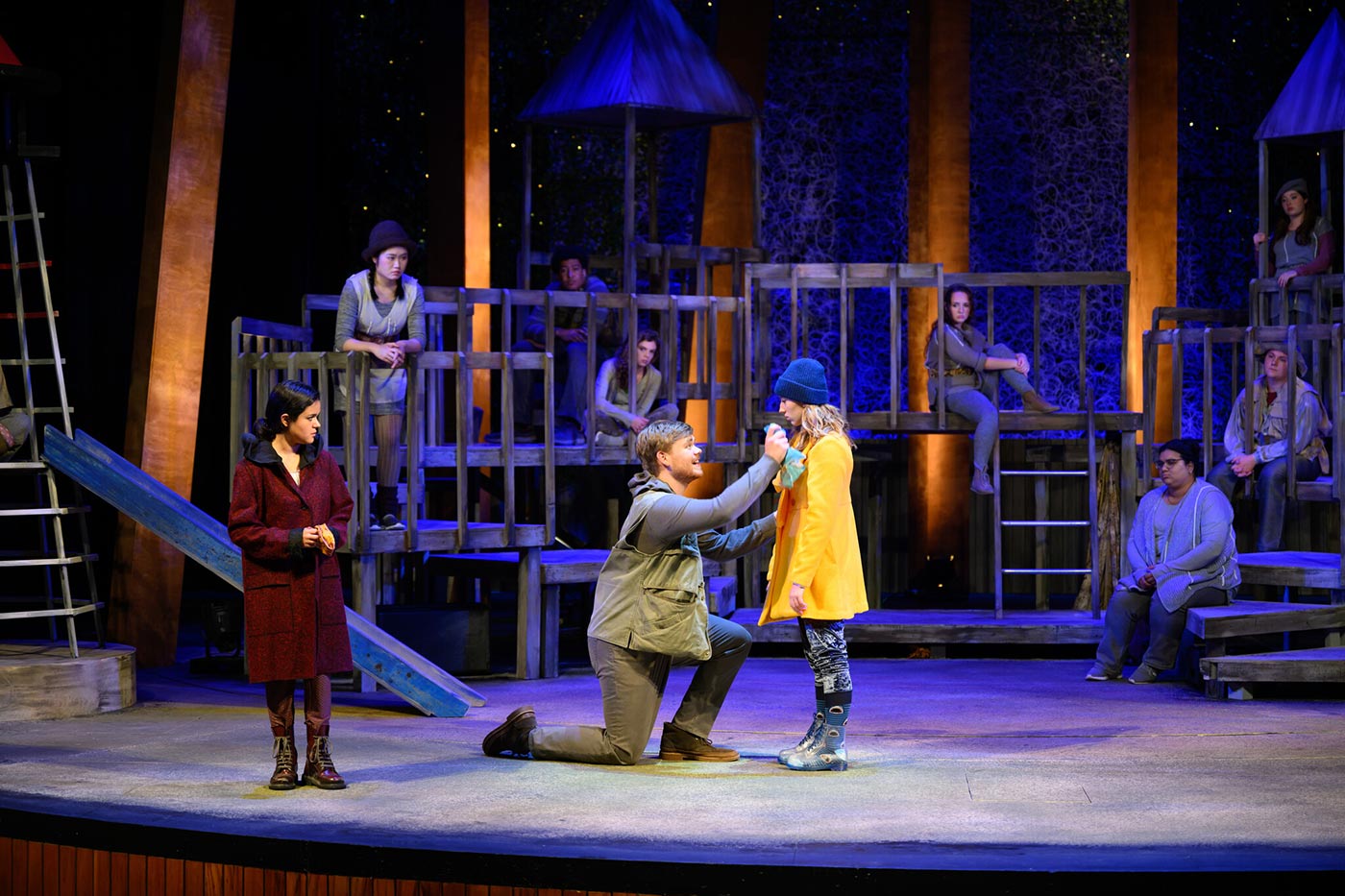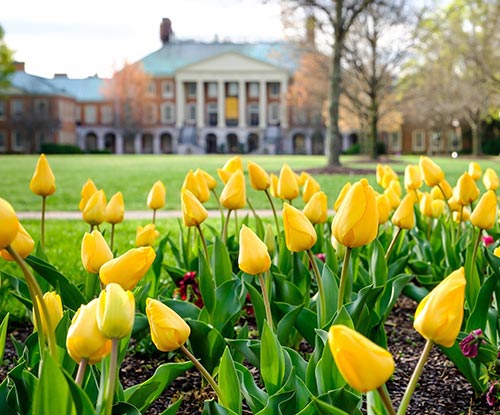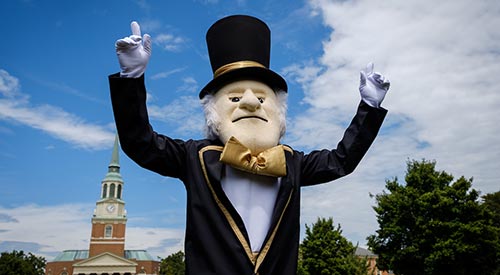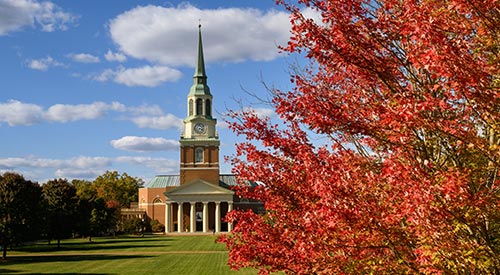Theatre

Theatre Degree
Bachelor of Arts, Minor
Program Type:
Major, Minor
Career Path:
Performing Arts, Humanities
Program Site:
College or School:
Why study Theatre?
Theatre majors learn how to communicate in multiple forms and settings no matter their specialty. They are exposed not only to acting but to acoustics, aesthetics and art, among others.
- In 2025-26, the Wake Forest Theatre will stage seven performances of each of four plays, including a mystery and a musical.
The Theatre program offers a Bachelor of Arts (B.A.) and a minor.
What classes would I take?
Our model and curriculum educate the whole person and often help students discover interests they had never previously discovered. Students generally take 100-200 level courses during their first year of college, while registering for higher level courses as upperclassmen.
Sample courses that you may take as a Theatre student include:
100-200 level
- Introduction to Western Theatre
- Stage Makeup
- Stage Combat
- Costume Construction
- Scene Design
300+ level
- History of Western Theatre
- Directing
- Acting Shakespeare
- Contemporary Drama
- Multicultural American Drama
What kind of experience will I gain?
With the broad liberal arts education all students receive at Wake Forest, graduates emerge as strong critical thinkers, prepared to face life’s many challenges.
Through discipline, performers, directors, designers, and stage managers learn clear self-expression and therefore grow in their ability to communicate well with others orally, visually, and in writing. They also learn about themselves and develop self confidence, organizational and analytical skills, and creative approaches to problem solving.
Wake Forest theatre majors have become actors, directors, stage managers, designers, theatre artistic directors, professors, cabaret singers, playwrights, and members of comedy troupes. Others have made careers outside of the arts and enjoy participating in community theatre. Many graduates also serve on boards for civic arts organizations.
Students in this program will develop the following skills:
- Creativity
- Expressive ability
- Keen observation of human traits and characteristics
- Conceptual ability
- Exposure to drama of various historical time periods
- Quick thinking
- Ability to relate to abstract ideas
- Oral communication skills
- Creative problem solving and interpretation
- Memorization skills
Are there extracurricular activities?
Joining a club or organization is a great way to get involved and do more with your major. Our Theatre students participate in the following programs:
- Wake Forest Theatre
- Anthony Aston Players
- Lost in Translation
- BiMoo Chinese Theatre Club
What kind of job can I get?
Careers that often interest Theatre majors, and fields our graduates work in, include:
- Director
- Playwright
- Actor
- Producer
- Artistic director
- Managing director
- Choreographer
- Fight choreographer
- Intimacy coordinator
- Marketing Director
- Technical Director
- Designer
- Scenic designer
- Costume designer
- Makeup and hair designer
- Sound designer
- Props designer
- Lighting and projections designer
- Special Effects designer
- Stage Manager
- Managing Director
- Dramaturg
- Advertising Specialist
- Box Office Manager
- Artists Agent
- Casting Agent
- Educator
- Screenwriter
- Production Assistant
- Publicist
- Manager
Theatre graduates include actors; architects; teachers; doctors; and aerospace engineers.
Related Programs

Majors & Minors
Choose from more than 50 majors and over 60 minors to find your perfect fit.

Life at Wake
Take a moment to explore all the student experiences that make Wake Forest unique.

Virtual Tour
Can’t make it for a visit? No problem! Let us show you around campus virtually.

Keep in Touch
Let us know you’re interested in Wake Forest and we’ll do the rest.

Visit Campus
You truly can’t appreciate the beauty of our campus until you experience it for yourself.

Apply
Want to be considered for our next class of Demon Deacons? Here’s how to get started.
